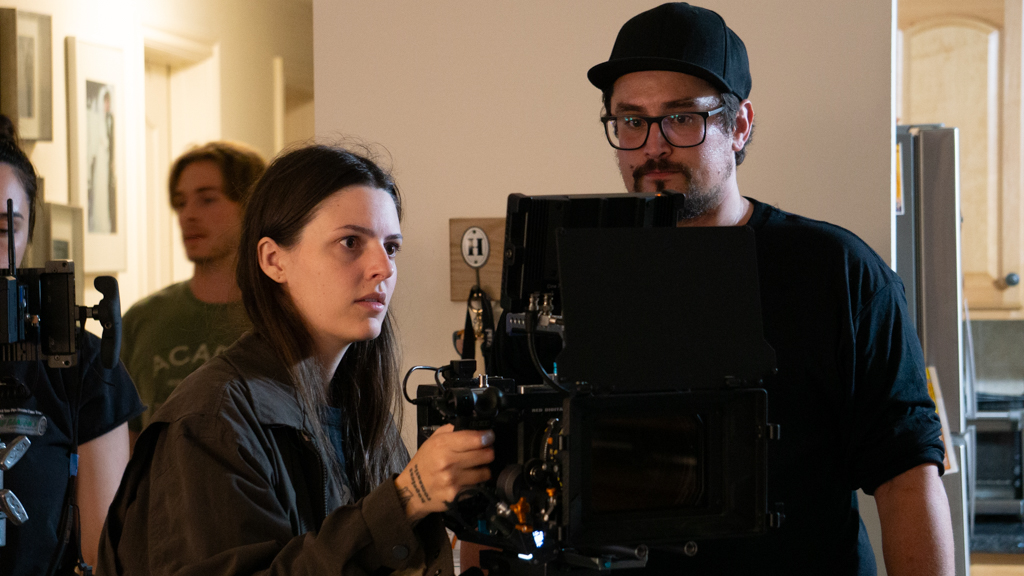We caught up with the brilliant and insightful Austin Smagalski a few weeks ago and have shared our conversation below.
Austin, looking forward to hearing all of your stories today. Are you able to earn a full-time living from your creative work? If so, can you walk us through your journey and how you made it happen?
Making a living in a creative field isn’t easy. You can ask a dozen people how to do it, and you’ll get a baker’s dozen of different routes. My story’s especially messy, because I love both editing and directing.
For me, I got my start editing promotional and corporate videos. First was kickstarters when I was in school, then real estate agents, small brands, that kind of thing. I networked, made a lot of new connections, and chased anything that paid while I juggled working as a barista at Starbucks. Eventually, after building a solid portfolio and posting a fair amount about the work I was doing on social media, I started getting more steady work as an editor. It was still promo work, but it paid better and was more steady.
That’s when I took my first big swing, and made my first feature film (Donovan Reid) with a few thousand dollars and a lot of help. A chance to direct while editing paid the bills. A few years later, as a media management odd job led to assistant editing work in television, that film would be pivotal in my argument to be bumped up to an editor. That led to my first TV editing job in the true crime world, and the steady work in TV editing allowed me to direct a second feature film, TO DIE ALONE, which is coming out in March of 2025.
That might sound like it all went smoothly, but it leaves out the dysfunctional companies, emotionally abusive clients, and overall rollercoaster it’s been to get to this point. It’s been a fight, but I’m finally at a comfortable place where I can make a living as an editor, and still have the chance to direct and chase personal creative projects.


As always, we appreciate you sharing your insights and we’ve got a few more questions for you, but before we get to all of that can you take a minute to introduce yourself and give our readers some of your back background and context?
I’ve always been drawn to film because it’s such an empathetic experience. It puts you in another person’s shoes unlike any other medium. In my work, I love making internal conflicts manifest externally – especially trauma. You can use those same tools that draw that viewer in and present a world that’s not so literal – it’s your protagonist’s perception, which can tell you an incredible amount about them.
In the scripted films that I write and direct, I try to use those tools to explore something interesting about people. Donovan Reid is a film that explores isolation in childhood and tense family dynamics, while TO DIE ALONE is all about emotional survival and guilt. Meanwhile in unscripted, because these are true stories, it’s much more about shaping the edit to deliver the subject’s story in a way that connects with viewers on a deeper level. I tend to stick to survivor stories where I can in the true crime world, because those stories are both harrowing and hopeful when done right.


Is there a particular goal or mission driving your creative journey?
I’ve always wanted to make movies for a living. That’s a tough racket, plus it’s expensive and risky. One of my biggest goals is to continue to build up my editing career alongside my directing one, and to eventually build my company Glass Creek Films into my primary source of income. I also want to do it right – not cutting corners and taking advantage of people, like a few companies I’ve worked for. I want to build that team and that company into a positive, sustainable creative workplace.


We often hear about learning lessons – but just as important is unlearning lessons. Have you ever had to unlearn a lesson?
Hustle culture – working until midnight every night, answering every email the second it lands and working through every weekend and thinking that’s how you succeed. The last few years has really taught me the harms of burnout, and how that’s not a sustainable life. I still do quite a bit, between editing full time most of the year and making features, but I keep a thorough schedule that lets me get my work done with some downtime every day, and taking at least one full weekend day off. It makes all the difference in the world to take rest seriously.
Contact Info:
- Website: https://www.glasscreekfilms.com
- Instagram: https://www.instagram.com/austinsmagalski/


Image Credits
Lauren Tatman


